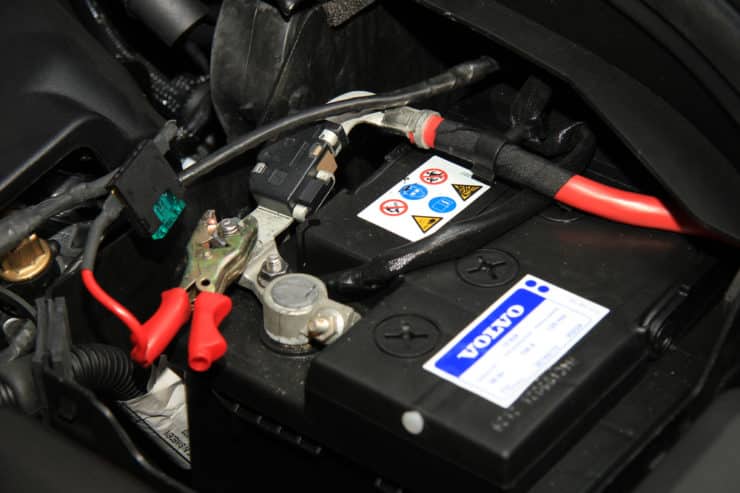Case Info
Volvo Satellite Radio Receiver Battery Drain Lawsuit
Volvo Cars of North America, LLC, a subsidiary of Volvo Car Corporation of Sweden, is facing a multi-million-dollar class action lawsuit, filed over claims that the automobiles were manufactured with a defective satellite radio receiver.
All Volvo vehicles manufactured after model year 2008 were equipped with a Remote Digital Audio Receiver (RDAR) which drains the car battery, even when the vehicle is off. This may leave motorists who paid a premium for a “reliable” car, stranded and unable to use their vehicles and may reduce the value of the car.
Though the company may have known about the RDAR battery defect as early as 2008, they have refused to fix the problem. Car owners who attempt to get the problem fixed on their own have paid hundreds or thousands of dollars in service visits, battery replacement and other costs. These owners may have been subject to inoperable vehicles, loss of property value and other damages due to battery drainage caused by the RDAR system.
Volvo may have defrauded customers by refusing to offer a software upgrade and by failing to disclose the defect to past, current, or future owners. People who own or lease a Volvo automobile manufactured after 2008 or those who have been affected by the Volvo RDAR battery drain may be eligible for compensation.
Volvo Remote Digital Audio Receiver (RDAR) Software Flaw
All Volvo vehicles manufactured after model year 2008 contain a satellite radio receiver known as the remote digital audio receiver or “RDAR”. The receiver is capable of playing satellite radio such as SiriusXM (and other now-defunct satellite radio stations) which requires a subscription to listen to.
The RDAR system continuously searches for satellite signal, even when the radio is not in use, when the owner does not have a satellite subscription or when the car is off. This continuous activity can work to drain the car battery, leaving the vehicle inoperable if the battery is exhausted and potentially leaving the car owner stranded.
Volvo RDAR Battery Complaints
Represented by Seeger Weiss, primary plaintiff Theresa Jenner filed the lawsuit against Volvo, citing her problems with her 2000 Volvo S40. The car was serviced for failure to start in 2012 at no charge, as it was still under warranty. Two years later in 2014, however, a similar even occurred but the car was no longer under warranty and the service visit cost Ms. Jenner, $248.91. The situation was repeated multiple times, with each occurrence costing about $300, including at least one battery replacement. At no time did Volvo repair or note that the problem was caused by the battery drain defect.
In addition to Ms. Jenner’s complaint, online car forums contain multiple comments of Volvo owners who had similar experiences. In some cases, the vehicles had been left for only a few hours and returned to find the battery drained.
Volvo Refused to Correct RDAR Programming
Volvo’s RDAR is designed as an integral part of the electrical system of the cars and cannot be easily disabled or turned off. Most attempts to disable or bypass the system result in failure. Though they have known about the problem for years, and it may be a simple software upgrade, Volvo has also not provided a free update to programming but may instead be charging hundreds of dollars for the service.
Some owners may also have attempted to have the vehicle repaired through service visits, repeated battery replacements or visits to car audio specialists. These repair attempts potentially cost hundreds of dollars or more only to fail to repair the vehicle. These costs are in addition to the lost value of the vehicle or other financial implications of a non-operable automobile.
Owners report multiple costs paid out-of-pocket including:
- Multiple battery replacement
- Car tow fees
- Service visit charges
- Diagnostic fees
- Satellite radio repairs
- Satellite radio replacement
When owners were left stranded, some may have faced personal difficulties including missed work or activities, even though they had paid a premium for a “reliable” Volvo vehicle.
Volvo RDAR Battery Drain Class Action Lawsuit
Volvo is facing a class action lawsuit over claims that the company has defrauded vehicle owners by failing to disclose the RDAR defect and continuing to refuse to service the vehicles at no charge. The first lawsuit was filed in 2015, however problems have continued to occur, and Volvo has failed to recall or repair affected vehicles. Reports show the battery drain issue may affect vehicles manufactured as recently as 2022-year model Volvo cars.
Despite multiple attempts by Volvo to have the lawsuit dismissed, in March 2023, a New Jersey federal judge gave approval for most of the claims of the plaintiff to proceed in a class action lawsuit in the U.S. District Court for the District of New Jersey.
The court filing noted plaintiff claims:
Volvo intentionally waited for car owners to discover the defect on their own, usually through an instance where the car would not start because of a drained battery. And when the car owners were forced to bring their vehicles (ostensibly out of warranty) in for needed repair in order to drive them again, Volvo charged them for the repair—a “software upgrade” to the defective device—instead of providing it for free.
As a result of the Volvo RDAR battery draining defect, vehicles become unreliable and inoperable even though those customers may have paid more for their Volvo due to a reputation of reliability.
If you own a Volvo vehicle, year model 2008 or later, which contains a satellite radio receiver or have been affected by the Volvo RDAR Battery Drain Defect, you may be eligible for compensation.
